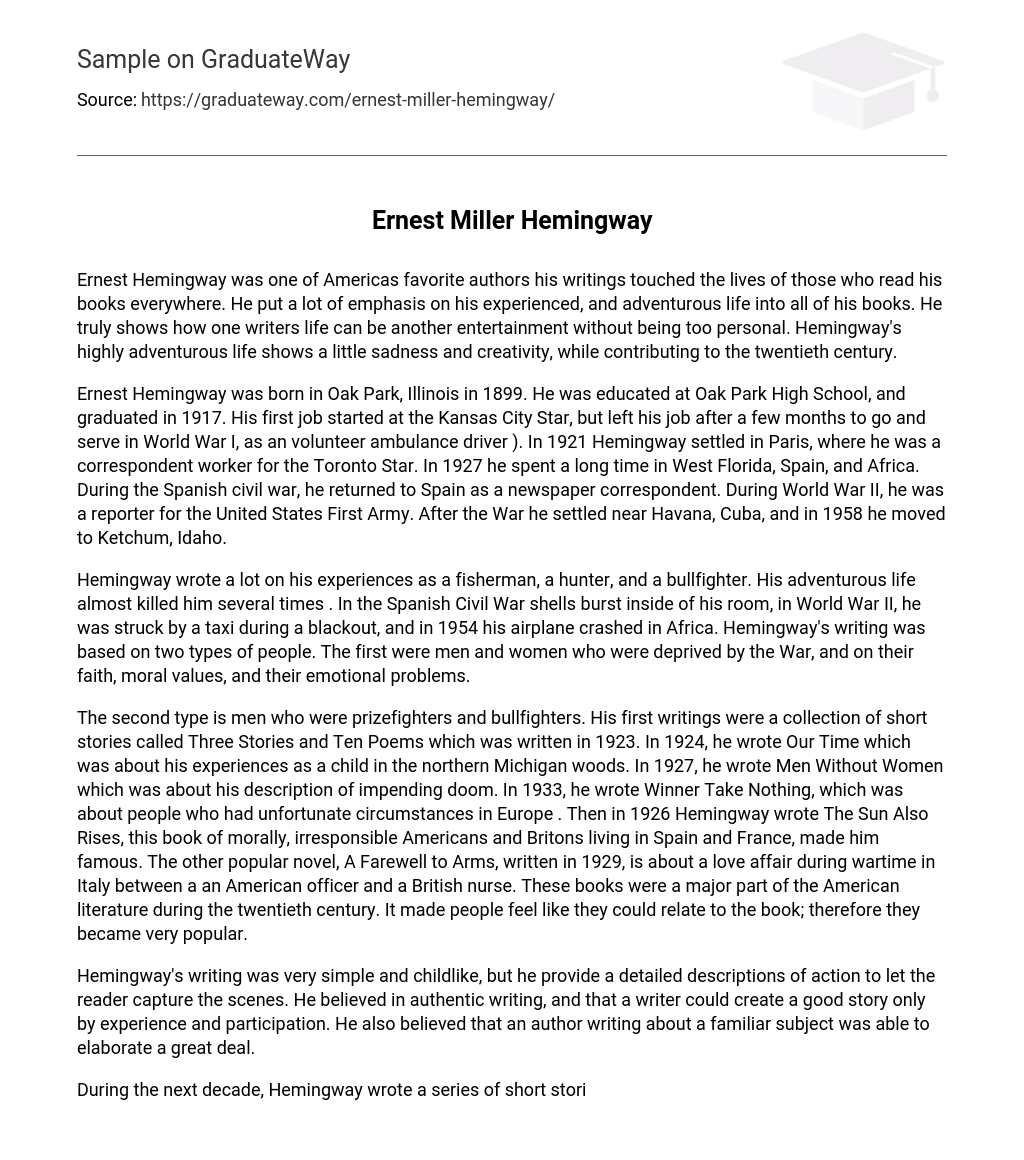Ernest Hemingway, a beloved American author, had a significant worldwide influence through his writings. His books reflect his adventurous and experiential life, demonstrating how a writer’s own experiences can captivate readers without becoming too personal. Hemingway’s bold and imaginative life greatly shaped the 20th century.
Ernest Hemingway was born in 1899 in Oak Park, Illinois and graduated from Oak Park High School in 1917. Initially, he worked for the Kansas City Star but later left to serve as an ambulance driver during World War I. In 1921, he moved to Paris and became a correspondent for the Toronto Star. Throughout his life, Hemingway extensively traveled and spent significant time in West Florida, Spain, and Africa. He returned to Spain during the Spanish Civil War as a newspaper correspondent and also reported for the United States First Army during World War II. After the war ended, he settled near Havana, Cuba until 1958 when he relocated to Ketchum, Idaho.
Hemingway’s writing captured his adventures as a fisherman, hunter, and bullfighter. His daring lifestyle exposed him to danger multiple times. He miraculously endured several disasters including a situation where shells exploded in his room during the Spanish Civil War, being hit by a taxi while it was dark in World War II, and surviving a plane crash in Africa in 1954. Hemingway’s literary works revolved around two main categories: those affected by the War who faced challenges, and individuals who relied on their faith, morals, and emotional tribulations.
The second category includes men who were prizefighters and bullfighters. Hemingway’s initial literary work was a compilation of short stories called Three Stories and Ten Poems, penned in 1923. Following that, in 1924, he wrote Our Time, which recounted his childhood experiences in the woods of northern Michigan. In 1927, Hemingway released Men Without Women, a collection that depicted a sense of impending doom. During 1933, he published Winner Take Nothing, exploring the unfortunate circumstances faced by individuals in Europe. Furthermore, in 1926, Hemingway gained fame for his novel The Sun Also Rises, which portrayed morally irresponsible Americans and Britons living in Spain and France. Another renowned novel by him is A Farewell to Arms written in 1929. The story is set during wartime in Italy and revolves around a love affair between an American officer and a British nurse.These books played a significant role in American literature throughout the twentieth century as they resonated with readers and became highly popular.
Hemingway had a simple and childlike writing style, but he still managed to give detailed descriptions of action to engage readers in the scenes. He strongly believed in the significance of genuine writing, stating that only personal experience and active participation could produce a captivating story. Additionally, he was convinced that authors who wrote about familiar subjects would be able to significantly expand upon them.
Hemingway wrote many short stories and novels during the next decade, drawing inspiration from his adventurous lifestyle. In 1953, he gained fame by winning the Pulitzer Prize for fiction and then received the Nobel Prize in literature the following year. His last literary publication, Collected Poems, came out in 1960. Sadly, Hemingway died at sixty-one years old in Ketchum, Idaho in 1961.
Hemingway, an extraordinary writer who found inspiration from his personal experiences, is celebrated as one of the most notable authors in history. His literary approach had a profound impact on the early 20th century.





